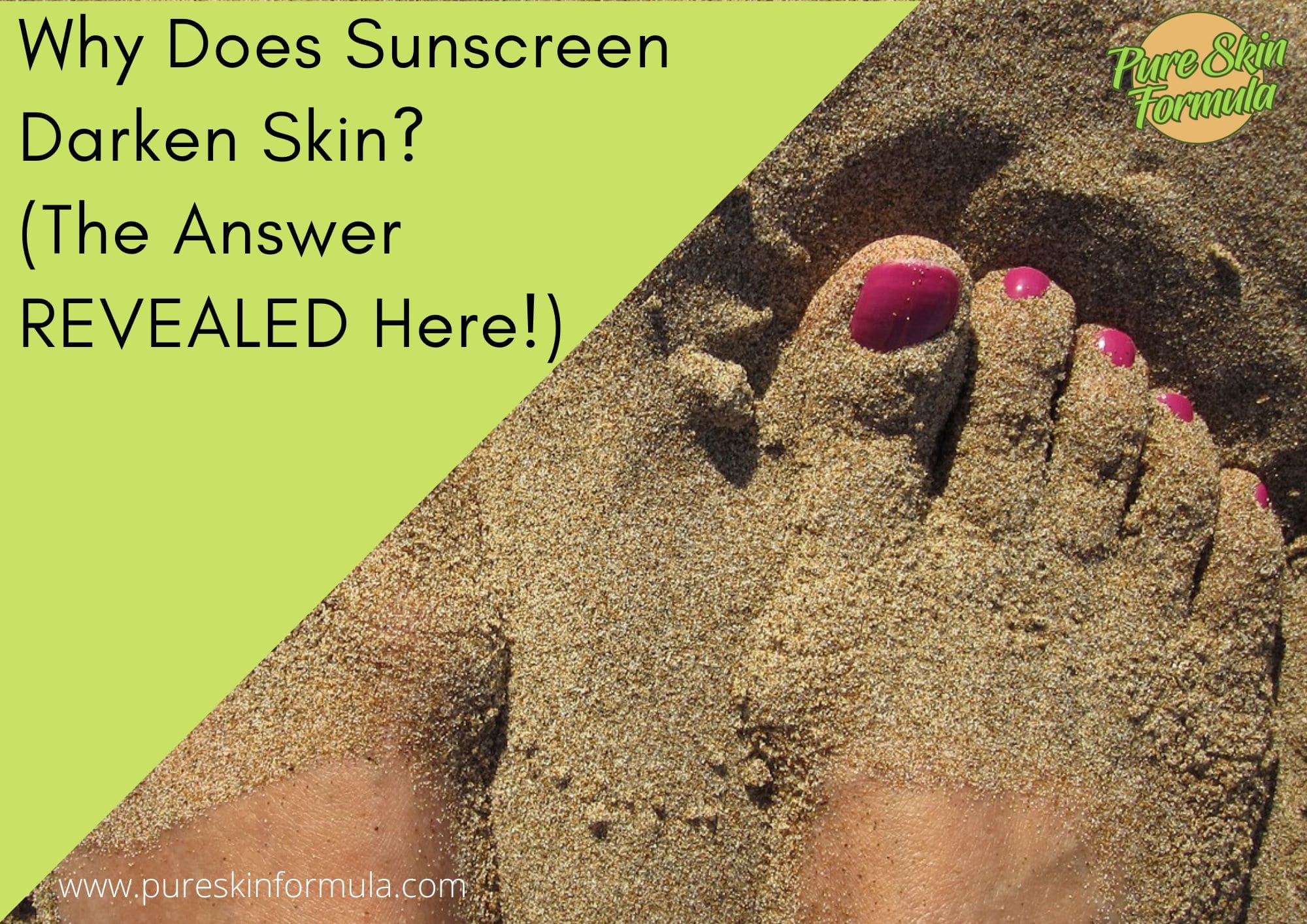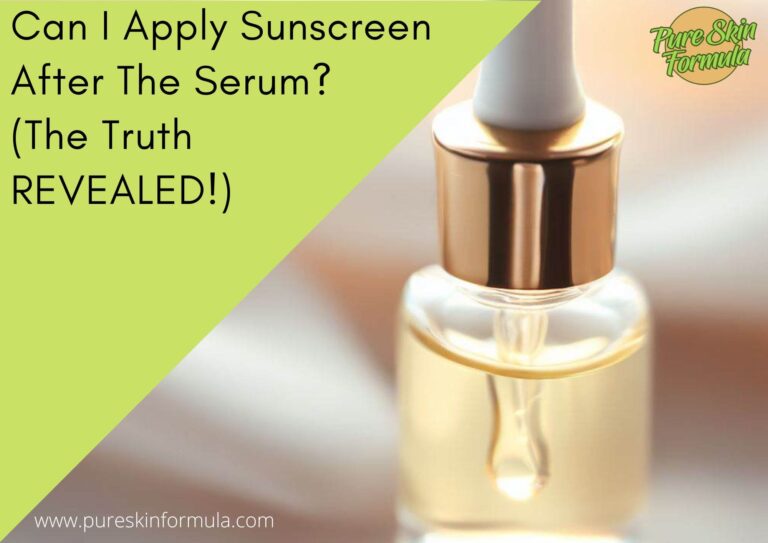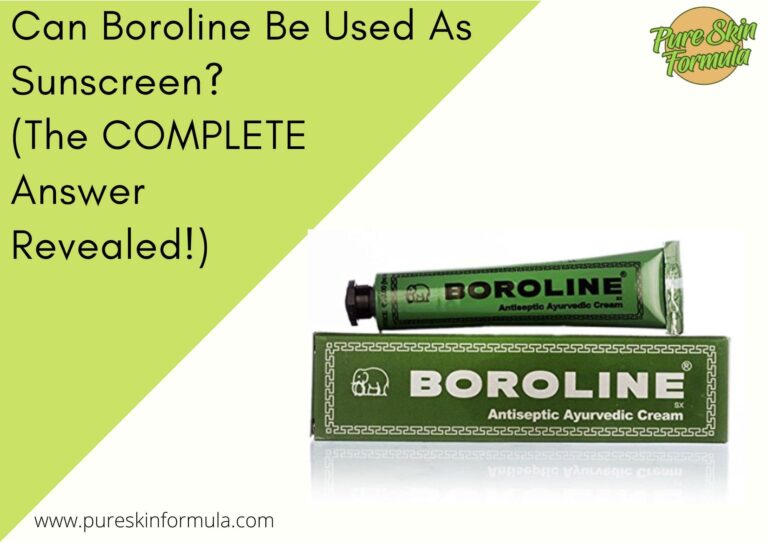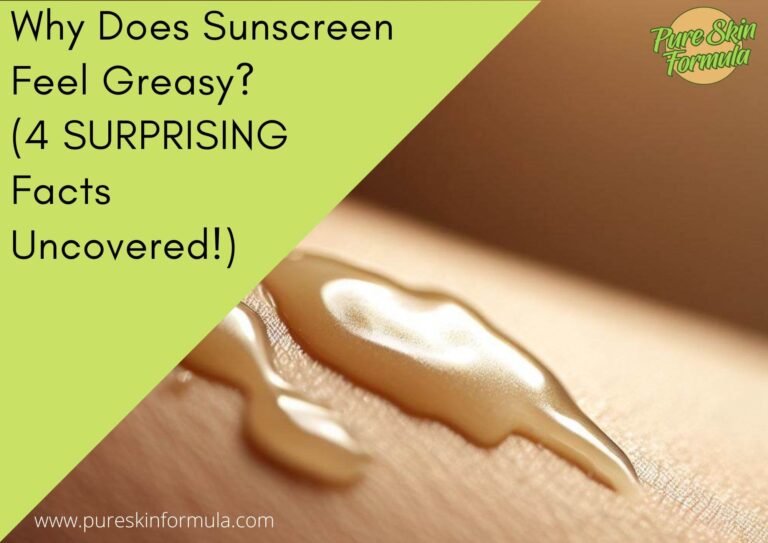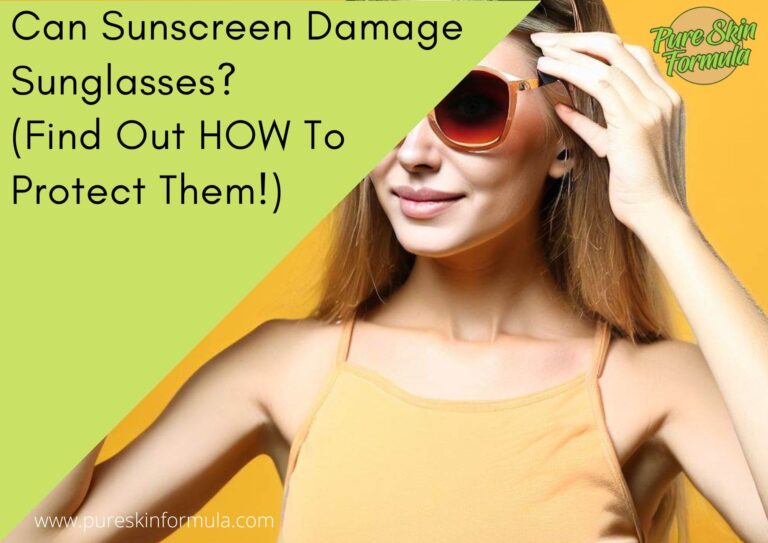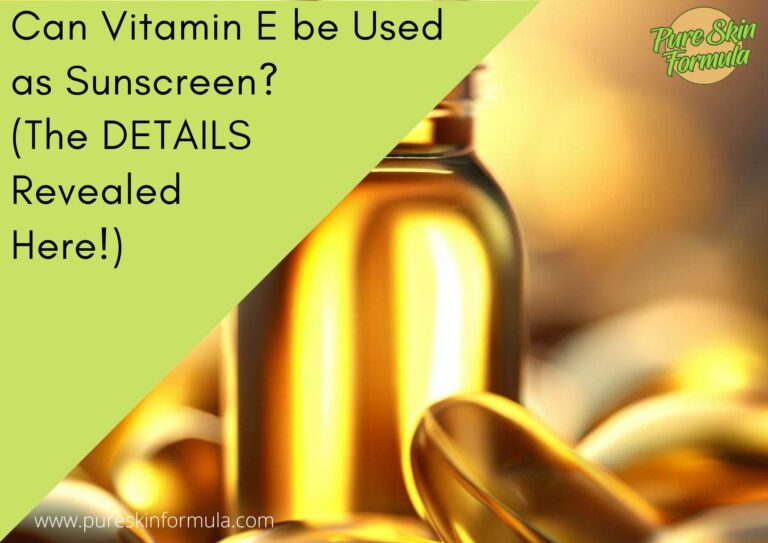The sun’s scorching heat can cause severe skin problems, such as sunburn, premature aging, and even skin cancer. To combat these issues, applying sunscreen is a must.
But did you know that sunscreen, especially chemical ones, can sometimes cause skin darkening? Yes, you read that right!
You may have noticed your skin getting darker after a beach day and wondered why that happened despite using sunscreen. The answer lies in the way chemical sunscreen works.
In this blog post, we will dive deep into why sunscreen darkens the skin, how it happens, and how to avoid it.
Let’s start the journey!
Why does sunscreen darken skin?
This phenomenon occurs more commonly with chemical sunscreens than with physical sunscreens.
Chemical sunscreens contain ingredients such as oxybenzone, avobenzone, and octinoxate, which work by absorbing UV rays before they can penetrate the skin.
However, in some cases, these chemicals can interact with melanin, the pigment that gives color to our skin.
Melanin is produced as a natural defense mechanism against UV radiation. When chemical sunscreen is absorbed into the skin, it can increase melanin production, leading to hyperpigmentation or skin darkening.
The severity of skin darkening caused by chemical sunscreen can vary from person to person, depending on factors such as skin type, skin sensitivity, and the concentration of active ingredients in the sunscreen.
People with darker skin tones may be more prone to skin darkening from chemical sunscreen, as their skin already contains more melanin than lighter skin tones.
In contrast, physical sunscreens contain ingredients such as zinc oxide or titanium dioxide, which create a physical barrier on the skin’s surface that reflects or scatters UV rays.
Physical sunscreens are less likely to cause skin darkening because they do not penetrate the skin and do not interact with melanin.
Let’s dig deeper into this.
How chemical sunscreen absorbs UV rays?
Chemical sunscreens use organic compounds to absorb UV radiation before it can penetrate the skin.

They convert it into heat energy that is then released from the skin.
For example, avobenzone effectively absorbs UVA radiation, which can penetrate deeper into the skin and cause long-term damage.
At the same time, octinoxate effectively absorbs UVB radiation, responsible for sunburn and immediate skin damage.
The effectiveness of chemical sunscreens can be influenced by factors such as the concentration of active ingredients, the type of UV radiation, and the duration and intensity of sun exposure.
A general rule of thumb is to reapply sunscreen every two hours or more frequently if swimming or sweating, as the protective barrier can wear off over time.
How can chemical sunscreen cause skin darkening?
The interaction between chemical sunscreen and melanin occurs because some of the chemicals in the sunscreen are structurally similar to the amino acid tyrosine, which is a precursor to melanin production.
When sunscreen is absorbed into the skin, it can bind to tyrosine and stimulate producing melanin.
This can result in the skin appearing darker than usual, especially in areas where the sunscreen has been applied.
How can reactions to a chemical sunscreen differ?
People can react differently to chemical sunscreen due to various factors, including their skin type, skin sensitivity, and individual sensitivity to specific ingredients in the sunscreen.
People with sensitive skin are more likely to experience adverse reactions to chemical sunscreens, such as skin irritation or allergic reactions.
Those with dry or eczema-prone skin may also be more susceptible to irritation from chemical sunscreens.

Individuals with darker skin tones may also be more prone to skin darkening or hyperpigmentation from chemical sunscreen due to increased melanin production.
On the other hand, people with fair skin may be more likely to experience sunburns and other types of sun damage if they don’t use adequate sun protection.
As for the ingredients, some of us may be sensitive to certain chemical filters, such as oxybenzone or avobenzone, while others may tolerate these ingredients well.
It is also possible to develop a sensitivity to a particular sunscreen over time, even if you have used it without problems.
This can occur due to changes in the formulation or concentration of ingredients or changes in your skin or overall health.
To minimize the risk of adverse reactions to chemical sunscreen, it is vital to choose a sunscreen that is appropriate for your skin type and sensitivity and to patch-test new products before applying them to larger areas of the skin.
It is also a good idea to speak with a dermatologist if you have concerns about how your skin may react to a particular sunscreen or sun protection strategy.
What about physical sunscreen?
It works differently than the chemical version by creating a physical barrier on the skin that reflects or scatters UV rays rather than absorbing them.

Physical sunscreen typically contains one or more mineral-based active ingredients, such as zinc oxide or titanium dioxide, reflecting and scattering UV radiation away from the skin.
These ingredients are insoluble in water and do not penetrate the skin, making them a good option for people with sensitive skin or concerns about chemical absorption.
When physical sunscreen is applied to the skin, the active ingredients form a protective layer on top of the skin and physically block UV rays from reaching the skin’s surface.
This barrier reflects and scatters UVA and UVB rays, providing broad-spectrum protection against sun damage.
A benefit of physical sunscreen is that it tends to be less irritating than chemical sunscreen, making it a good option for those with sensitive skin or prone to irritation.
Final thoughts
Sunscreen is essential to any skincare routine, especially if you plan to spend time outdoors.
However, it’s essential to understand that certain types of sunscreen, mainly chemical, can sometimes cause skin darkening.
This occurs due to the chemical reaction between the active ingredients and melanin in the skin.
To prevent this, it’s essential to choose the right type of sunscreen, reapply it regularly, and seek shade during peak sun hours.
Additionally, if you experience any skin irritation or darkening after using sunscreen, it’s best to consult a dermatologist.
By following these tips, you can enjoy your time in the sun while keeping your skin healthy and beautiful.
Thank you for reading!
Valeria

